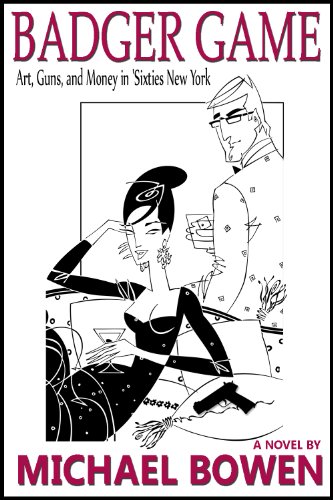At 10:42 p.m. on March 2, 1962, Katherine Colleen Ferguson arrived at the corner of Broadway and Seventh Avenue in New York City after a journey of 128 feet, straight down. Not belong before she had warned Thomas Andrew Curry about a grand jury investigation of stock manipulation involving a matter they had both worked on while clerking for the same law firm. And not long afterward, Thomas and Sandrine Cadette find Harrison Tyler’s body in his Greenwich Village garret, in the shadows of a savagely vandalized satirical painting he had almost finished. These two mysterious deaths in the intersecting worlds of fine art and high finance both implicate the small Manhattan law partnership formed by Thomas’s father, T. Graham Curry, and his mentor, Theodore Furst. That’s how Thomas and Sandy find themselves in the middle of an investigation that his Manhattan attitude and her French flair will take in provocative directions.
The eighteen years from the end of World War II to President Kennedy’s assassination was the Greatest Generation’s victory lap, but it wasn’t all triumphal parades and booming birth rates. It was also a time of dirty politics and nasty little wars – in China, where Thomas’s mother was killed; in Algeria, where Sandy’s father died for his country, on the wrong side of history; and in Korea where Thomas learned, as he later put it, to fly helicopters and kill people. Coming of age then, people like Thomas and Sandy had to decide whether to embrace nihilism or life. Thomas and Sandy picked life.
Badger Game is an old school, plucky-couple, New York mystery: snappy patter, adult pleasures, seedy clip joints, insolent cabbies, erudite banter, smoking guns, the occasional fist-fight, puzzles aplenty along the way, and a twist at the end. It’s about art, love, murder, money, and Cold War politics – but mostly it’s about two people at a remarkable time and place. New York City in 1962 was gliding serenely toward the end of its last golden age – and nobody knew it. As Furst explains: “My dividing line is November 22, 1963, and my last normal year is 1962. I don’t know why that is, really. I’ve lived through the depression, World War II, Korea, McCarthyism – all more momentous than the assassination of President Kennedy. I just know that that’s the way it seems to me: Before then, things were distinctively one way, and since then they’ve been distinctively another way. Thomas and Sandy were two of my favorite people. This is their story, not mine. Telling that story is the best way I can think of to recapture what was special about the way things were Then.”

